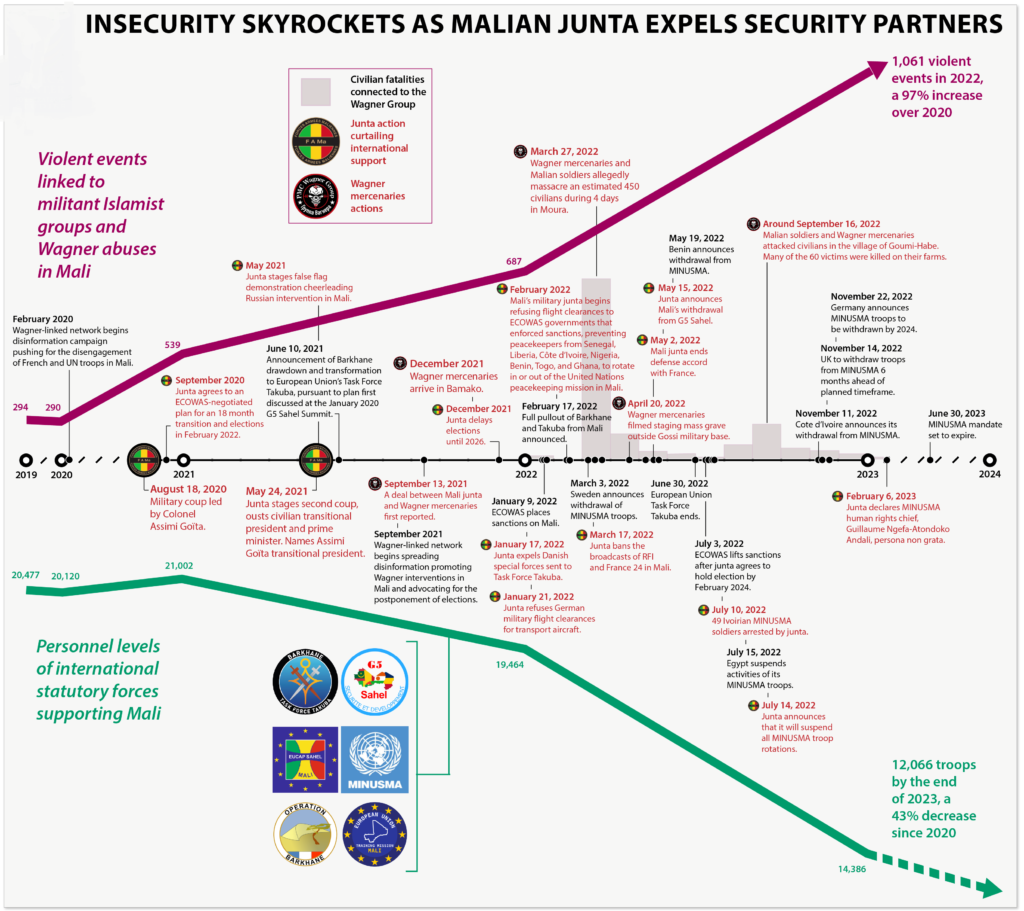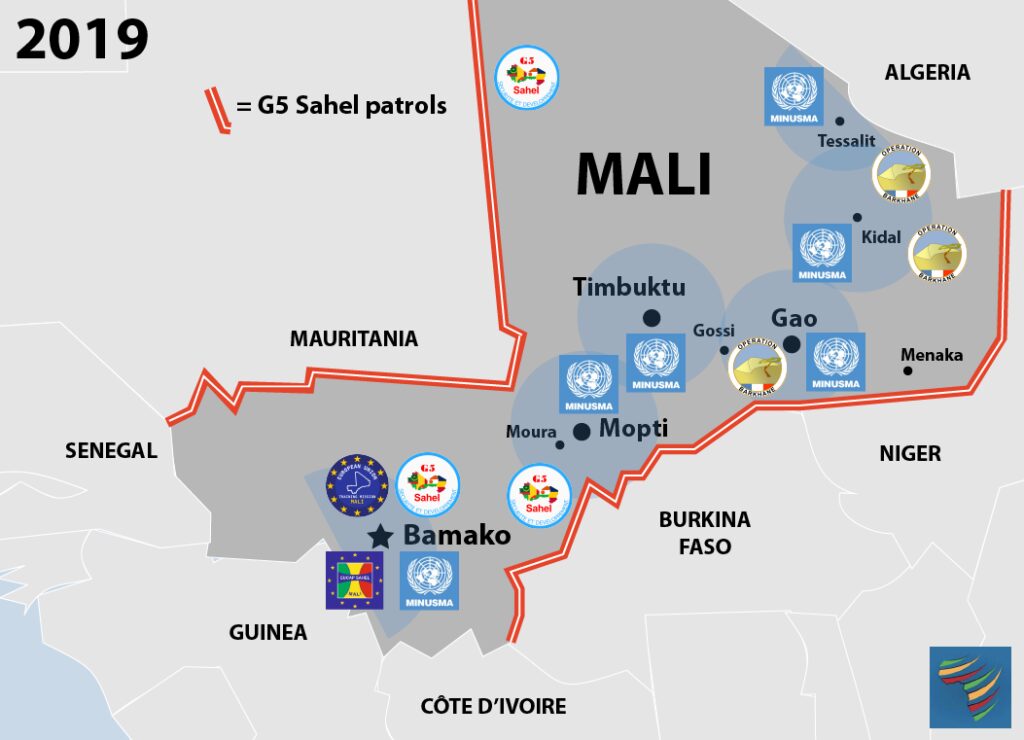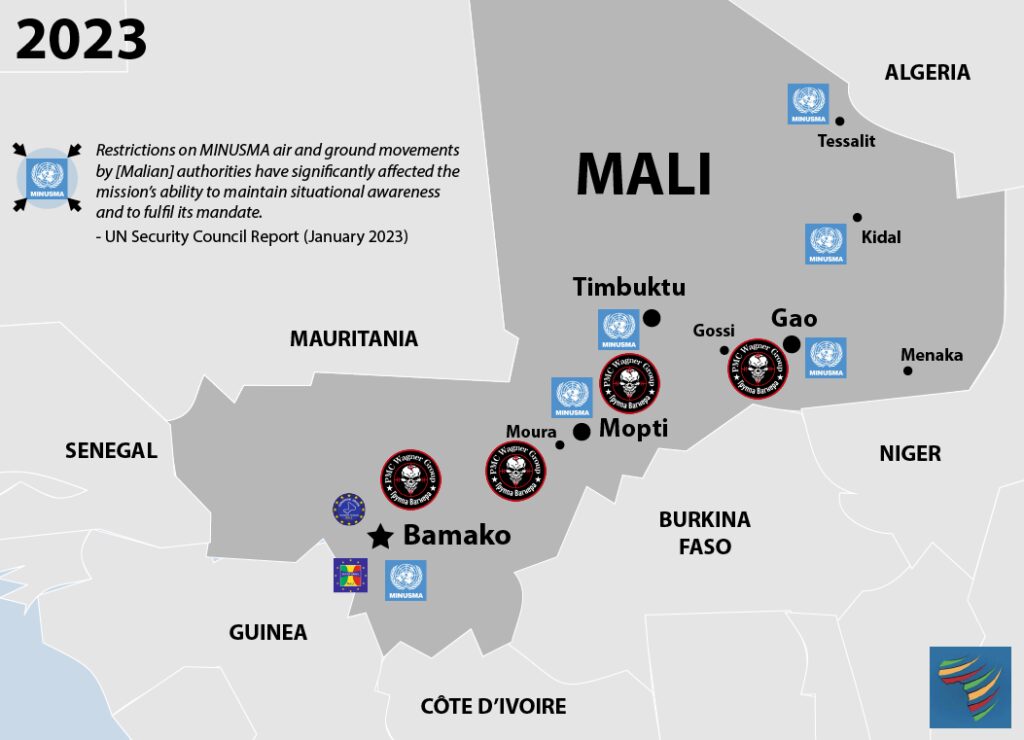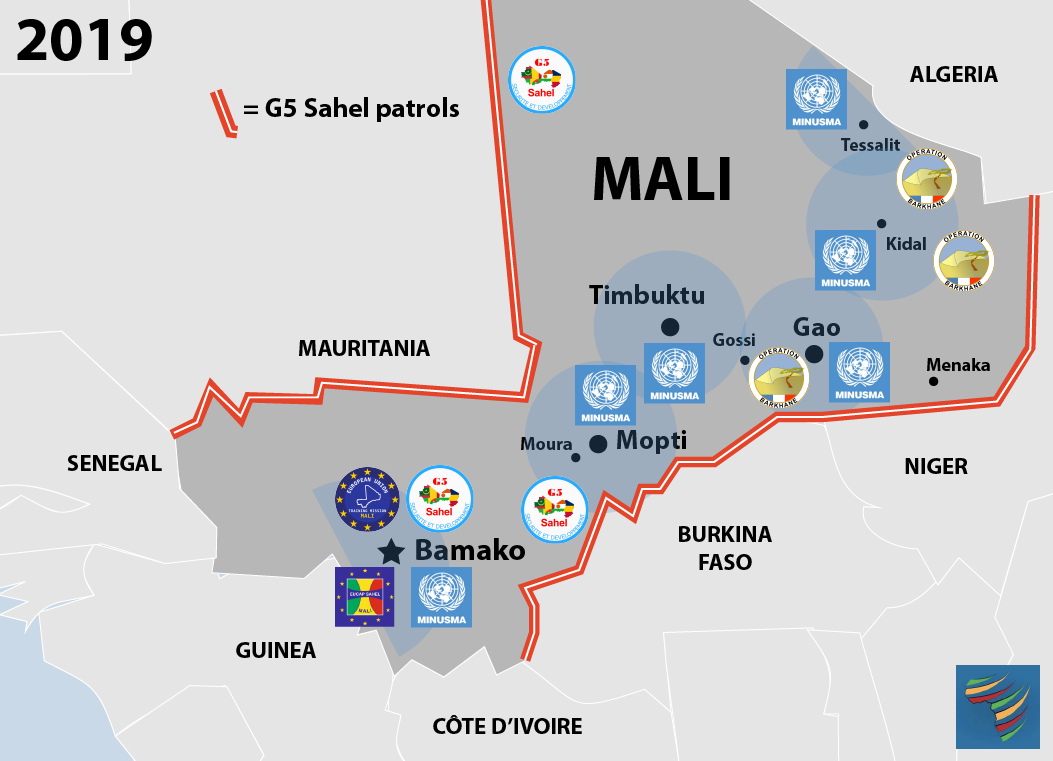The military junta in Mali has alienated regional and international security partners amid escalating violence by militant Islamist groups, leading to a spike in civilian fatalities.

Since taking power in August 2020, the military junta in Mali has alienated its regional and international security partners and pursued a strategy that has exacerbated the militant Islamist violence threatening the country, thereby accelerating the security crisis in the Sahel.
Violence linked to militant Islamist groups has nearly doubled since the junta seized power in 2020. And annual fatalities associated with this violence more than doubled in 2022.
Civilians have borne the brunt of this violence. There were more civilians killed in Mali in every quarter of 2022 than in any previous calendar year. Fatalities associated with violence against civilians are seven times higher in 2022 than in 2021.
Simultaneous to this escalation, the junta has imposed restrictions on regional and international security partner troop rotations, flight clearances, maneuvers, and patrol routes. This includes:
- Detaining Ivoirian soldiers sent to support MINUSMA
- Expelling senior United Nations officials
- Unilaterally withdrawing Mali from the Sahel G5, including its joint force. This has dramatically reduced security coordination with Mali’s neighbors, increasing the vulnerability of frequently targeted border areas.
- Significantly reducing regional and international forces in northern Mali contributing to a surge in militant Islamist violence in the Gao and Menaka regions. The Islamic State in the Greater Sahara (ISGS) has capitalized on the reduced presence of international security forces and the inability of the junta to reestablish control over the area. Jama’at Nusrat al Islam wal Muslimin (JNIM)-linked forces and ISGS now openly vie for control of this territory on the borders of Burkina Faso and Niger.
International statutory forces supporting Mali by the end of 2023 represent a 40-percent reduction compared to 2020 levels. Their numbers are projected to decrease by a further 15 percent by the end of 2024.
Meanwhile, the junta has brought an estimated 1,000 fighters from the notorious Russian paramilitary unit, the Wagner Group.
- The junta alongside the Wagner Group have targeted civilians in approximately 60 percent of Wagner-linked operations.
- Four out of five people killed by the Wagner Group alongside Malian soldiers, were civilians. Often, these victims were women, children, or elderly.
- These deaths accounted for more than 40 percent of all fatalities from violence against civilians in Mali during 2022.
- The Malian junta has repeatedly leveraged coordinated disinformation campaigns to soften the ground for Wagner’s arrival and for expelling or restricting statutory support to Mali.
More than 2.7 million people have been displaced by the escalating violence and insecurity in the Sahel.
A Diminished Security Footprint


Diminishing International Support
MINUSMA
With its mandate expiring in June 2023, the UN has presented three potential options for the future of its peacekeeping mission in Mali. The first envisions a larger mission but would require the junta to guarantee freedom of movement to the peacekeepers and to make progress toward a transition to civilian rule. This scenario also entails an increase in troop contributions. A second option proposes the shuttering of the uniformed arm of the mission to be replaced by a special political mission. The third option maintains the current troop configuration with a significantly reduced mandate for the mission.
Given the announced plans of several troop contributing countries to withdraw their forces and no indication that the junta is willing to meet MINUSMA’s proposed parameters, it seems probable that the peacekeeping mission may close, further exposing Malian communities to insecurity. This appears to be by design as the junta and Wagner Group have repeatedly taken actions to hamstring the UN mission and prevent independent investigations of human rights allegations such as in Moura where at least 450 people were killed.
Sahel G5
The four remaining member states of the G5—Niger, Chad, Mauritania, and Burkina Faso—have encouraged Mali to return to the regional organization. Given that the efficacy of this joint force is premised around joint cross-border operations, the Malian junta’s withdrawal has effectively rendered the G5 nonfunctional.
European-led Missions
The European Union Training Mission in Mali (EUTM Mali) has halved the number of troops it has on the ground in Mali. It continues to support the Malian armed forces on strategic advice and education until the end of its mandate in May 2024. All operational and nonoperational activities are suspended, though with the capacity to resume when conditions are met to support the creation of sustainable and capable armed forces under democratic control.
The European Union Capacity Building Mission in Mali (EUCAP Sahel Mali) is a European Union capacity building civilian crisis management mission in Mali. Its mandate was extended by the European Union’s Political and Security Committee (EU PSC) until January 2025, with over $75 million allocated. EUCAP has adapted its mission due to the volatile situation in Mali focusing on the support of internal security forces, primarily the National Police, in southern Mali. The redeployment of the internal security forces to central Mali could resume if deemed feasible.
Operation Barkhane and Task Force Takuba both ended their missions and withdrew their forces in 2022. Since 2020, there had been plans to reform the French-led Operation Barkhane to the EU-led Takuba mission. The Malian junta’s expulsion of the Danish contingent of Takuba in January 2022, precipitated the termination of the EU force. France withdrew all its troops from Mali at the junta’s behest in August 2022.

